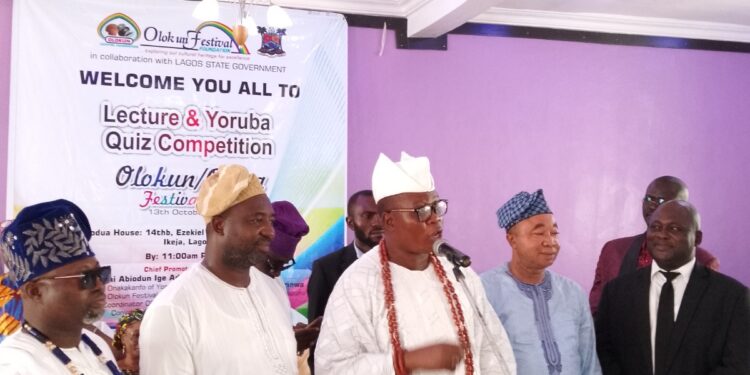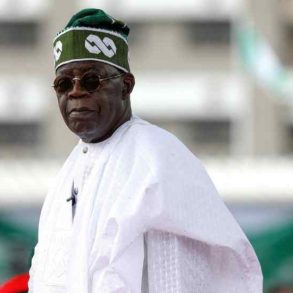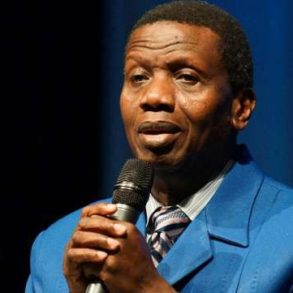The Aare-ona-kakanfo of Yorubaland, Iba Gani Adams, has appealed to religious leaders to shun religious fanatism for peace and tranquillity to reign in the country.
Iba Adams made the call on Friday at an event ‘Lecture and Yoruba Quiz Competition,’ being part of the programmes for the on-going Olokun/Olosa Festival held in Lagos.
He warned that religious leaders should not engage in fanatism all because they wanted to promote their own religions.
While making the call, the Yoruba generalissimo maintained that there was a difference between religion and tradition, pointing out that being a Christian or Muslim did not mean “we should not identify with Yoruba culture and tradition.”
According to Adams, traditional religion was about people’s lives, identity, and how they are, adding that religion was about how people, through their different religious beliefs, communicate with the Almighty God, even as he warned against potential danger to peace and tranquillity in a society where religious fanatism was being allowed.
“There is a difference between religion and tradition. Being a Christian or Muslim does not mean we should not identify with Yoruba culture and tradition. It’s about our lives, it’s about our identity, it’s about how we are. This is the culture and tradition.
“Religion is about how we communicate with the Almighty God. Christians have a way of communicating with Almighty God, Muslims have their own way of communicating with Almighty God, and traditional believers have their way too. Hindu budis, they have their different ways.
“So we are appealing to the religious leaders that they should not castigate our culture and tradition, even Yoruba religion, simply because they want to promote their religions. That has already turned to religious fanaticism.
“And in society, something like that is being allowed, there is a potential danger to the peace and tranquillity of the country. You can see what is happening in the North because they were not being moderate about how they practise Islam. I am a Muslim by birth but am being moderate,” he said.
Speaking further, the Yoruba generalissimo, while reiterating the need to be liberal in order for peace to “reign in our country,” posited that throwing away traditional religion would make it “very difficult for you to invent anything or have a technology.”
According to him, “You can only get technology through your religion, through Ifa corpus. By doing Ifa corpus, you would invent a lot of things. There would now be a trance that will now give you the way of technology, even beyond religion.”
On the programme of the event, Iba Adams disclosed that students were drawn from 12 different secondary schools in Lagos, saying that the lecture and quiz competition were aimed at promoting Yoruba culture and tradition.
He said the programme, which took place on the 3rd day of the 8-day programme to celebrate the 2023 Olokun/Olosa Festival, was also aimed at making people understand the difference between religion, culture and tradition.
“This has been part of what we are doing, without a programme like this, people would not understand. Some people do not know the difference between religion, culture and tradition,” Iba Adams said.
Guest lecturer Prof Joshua Oluwasegun Bolarinwa, in his lecture titled: “The Place of Omoluabi Philosophy in the Protection and Preservation of Yoruba Culture,” noted that the fundamental principles that were required of a person before he or she could be referred to as an Omolubi included expert knowledge and use of language, goodwill, a high sense of humility and respect and honesty.
Besides, he listed other qualities, including truthfulness, hard work, dedication to work, bravery, courage, and intelligence, adding “Essentially, Omoluabi literally connotes ‘child of good character,’ and this forms the core foundation of Yoruba culture and society.”
Bolarinwa, a senior research fellow and head of the Division of Areas Country Studies, Research and Studies Department of the Nigerian Institute of International Affairs (NIIA), Lagos, stated that Omoluabi philosophy had assisted in preserving the Yoruba culture regarding cultural identity and respect for elders, among others.
“Ultimately, the teachings of Omoluabi among Yorubas have placed them in a position where they consider respect for elders a serious obligation.
“For instance, it is observed that in contemporary Yoruba societies, a person who does not greet elderly people in accepted language and tone is considered to be lacking in home training (ẹ̀kọ́ ilé), and such a person cannot be regarded as an Omoluabi,” he said.
Prof. Bolarinwa, while sadly noting the moral decadence pervading the society, said such could be addressed by “Promoting cultural values and belief systems among Yoruba people,
Initiate, promote, and foster inter-community relations.
According to him, other approaches included “Deploying the use of all forms of media platforms in emphasizing the place of Omoluabi among the Yoruba people, creating a social and economic environment that emphasizes and supports the Omoluabi, promoting awareness and understanding of the Omoluabi philosophy among young people and even adults, celebrating and rewarding people who preach, uphold, and embody the values of the Omoluabi.”
Other speakers that spoke at the event included the Parakoyi Aare-Ona-Kakanfo of Yorubaland, Prof. Kolawole Raheem; Chief Gani Kayode Balogun and Dr. Busola Odedina, the director of Arts and Culture, Lagos State.
Some other guests present at the event included Yoruba culture promoter, Oba Adekunle Aderounmu from Brazil; Atoloye Aare-ona-kakanfo of Yorubaland, Chief Babajide Tanimowo; Bareejiro Aare-ona-kakanfo, Chief Dauda Asikolaiye; Akinrogun Aare-ona-kakanfo of Yorubaland, Chief Kazeem Hamzat; Asoju Aare-Ona-kakanfo of Yorubaland, Chief Yinka Oguntimehin and members of the National Executive Council(NEC) and National Coordinating Council (NCC) of the OPC.






